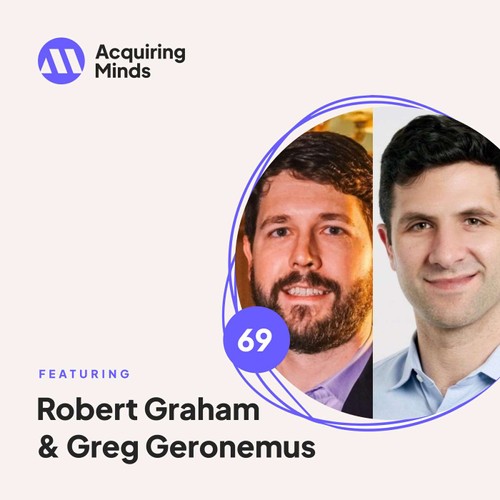
 Acquiring Minds
Acquiring Minds Self-Funded Search vs. Traditional Search Funds
39 snips
Apr 18, 2022 Robert Graham, an acquisition entrepreneur at SIG, and Greg Geronemus, an investor at Footbridge Partners who successfully utilized a traditional search fund, engage in a spirited debate about self-funded versus traditional search funds. They discuss the economic differences and fixed terms of traditional funds. The conversation dives into governance dynamics, success probabilities, and the flexibility of self-funded searches. Both guests share insights on board assembly challenges and the evolving accessibility of these funding models for aspiring entrepreneurs.
AI Snips
Chapters
Transcript
Episode notes
Traditional Search Fund Basics
- Traditional search funds provide upfront capital and investor support for longer searches and larger deals.
- This model often brings credibility and resources that can reduce risk during search and growth phases.
Self-Funded Search Advantages
- Self-funded searchers cover their own search costs and enjoy ownership flexibility.
- They often retain majority ownership and can target a range of business sizes including substantial EBITDA companies.
Tradeoff: Deal Size vs Ownership
- Traditional search deals tend to be larger but result in smaller ownership percentages for the searcher.
- Self-funded deals typically involve smaller businesses but with higher ownership stakes for the entrepreneur.
